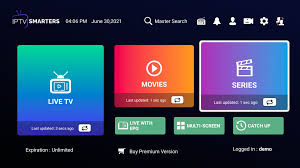The Rise of IPTV Applications: A Complete Overview
In the ever-evolving landscape of digital entertainment, IPTV (Internet Protocol Television) has emerged as a game-changer. IPTV applications allow users to access television content via the internet, eliminating the need for traditional cable or satellite services. This article delves into what IPTV applications are, how they work, their benefits, and considerations for users looking to integrate them into their viewing experience.
What is IPTV?
IPTV stands for Internet Protocol Television. It is a technology that delivers television content over the internet instead of through traditional broadcast methods like cable or satellite. This means that users can watch live TV channels, on-demand content, and even record shows directly through an internet connection.
How IPTV Works
IPTV operates using a series of protocols to transmit data. Content is delivered in packets over the internet, allowing for real-time streaming. Users typically access IPTV through applications that can be installed on various devices, including smart TVs, tablets, smartphones, and streaming devices like the Amazon Fire Stick.
Types of IPTV Services
- Live IPTV: This allows users to watch live television broadcasts, similar to traditional cable services.
- Video on Demand (VOD): Users can choose from a library of movies and shows to watch whenever they want.
- Time-Shifted TV: This feature enables users to watch previously aired shows at their convenience, essentially allowing for a catch-up viewing experience.
Popular IPTV Applications
Numerous IPTV applications are available today, catering to various needs and preferences. Here are some of the most popular options:
1. IPTV Smarters

IPTV Smarters is a widely used application that supports live TV, VOD, and series. It offers a user-friendly interface, EPG (Electronic Program Guide) support, and allows users to create a favorites list.
2. Perfect Player
Perfect Player is known for its sleek design and extensive functionality. It supports multiple playlists, offers advanced settings for customization, and provides a robust viewing experience.
3. GSE Smart IPTV
GSE Smart IPTV is versatile and supports a wide range of formats, making it a great option for those who want to integrate various content sources. It also includes an advanced EPG and parental controls.
4. Kodi
Kodi is an open-source media center that supports various add-ons, including IPTV services. With its customizable interface, users can tailor their experience to suit their preferences.
Advantages of IPTV Applications
1. Cost-Effective
One of the most significant advantages of IPTV applications is cost savings. Subscriptions are generally cheaper than traditional cable packages, and users can often select only the channels they want, avoiding unwanted extras.
2. Flexibility and Convenience
IPTV provides the flexibility to watch content on multiple devices. Whether you’re at home or on the go, as long as you have a stable internet connection, you can access your favorite shows and channels.
3. Variety of Content
With IPTV applications, users can access a broader range of channels than typically available through cable services. This includes international channels, niche programming, and specialized content.
4. High-Quality Streaming
IPTV applications can deliver high-definition (HD) and even 4K streaming, provided you have a fast internet connection. This ensures an immersive viewing experience, especially on larger screens.
5. User-Friendly Interface
Most IPTV applications come with intuitive interfaces, making it easy to navigate channels and find content. Features like search functions, favorites lists, and categorized channels enhance the user experience.
Challenges and Considerations
1. Internet Dependency
The primary drawback of IPTV is its reliance on a strong and stable internet connection. If your internet is slow or unreliable, you may experience buffering or poor-quality streams. It’s advisable to have a minimum internet speed of around 10 Mbps for standard HD content.
2. Legal Issues
Not all IPTV services operate legally. While many legitimate providers offer authorized content, some may distribute copyrighted material without permission. Users should research and choose reputable IPTV providers to avoid potential legal complications.
3. Device Compatibility
While most IPTV applications are compatible with popular devices like smart TVs and streaming sticks, some may have limited functionality on certain platforms. Always check compatibility before downloading an IPTV app.
4. Limited Customer Support
Unlike traditional cable services, which often have dedicated customer support, some IPTV providers may not offer robust assistance. Users may need to rely on community forums or online resources for troubleshooting.
Best Practices for Using IPTV Applications
To maximize your IPTV experience, consider these best practices:
- Choose a Reliable Provider: Research and select a reputable IPTV service that offers a variety of channels and good customer reviews.
- Stable Internet Connection: Ensure your internet connection is stable and fast enough to handle streaming. Consider upgrading your plan if necessary.
- Regular Updates: Keep your IPTV app updated to access the latest features and improvements. This also helps with security.
- Use a VPN: If you want to enhance your privacy or access geo-restricted content, consider using a Virtual Private Network (VPN). This can help maintain anonymity and bypass regional restrictions.
- Explore Features: Take advantage of the various features offered by your IPTV app, such as recording options, parental controls, and customizable settings.
Conclusion
IPTV applications have transformed how we consume television, providing a flexible, cost-effective alternative to traditional cable services. With a wide variety of apps available, users can tailor their viewing experience to meet their specific preferences. However, it’s essential to navigate potential challenges, such as internet dependency and legal issues, to fully enjoy the benefits of IPTV. By following best practices and choosing reputable providers, users can enhance their entertainment experience and embrace the future of television.


